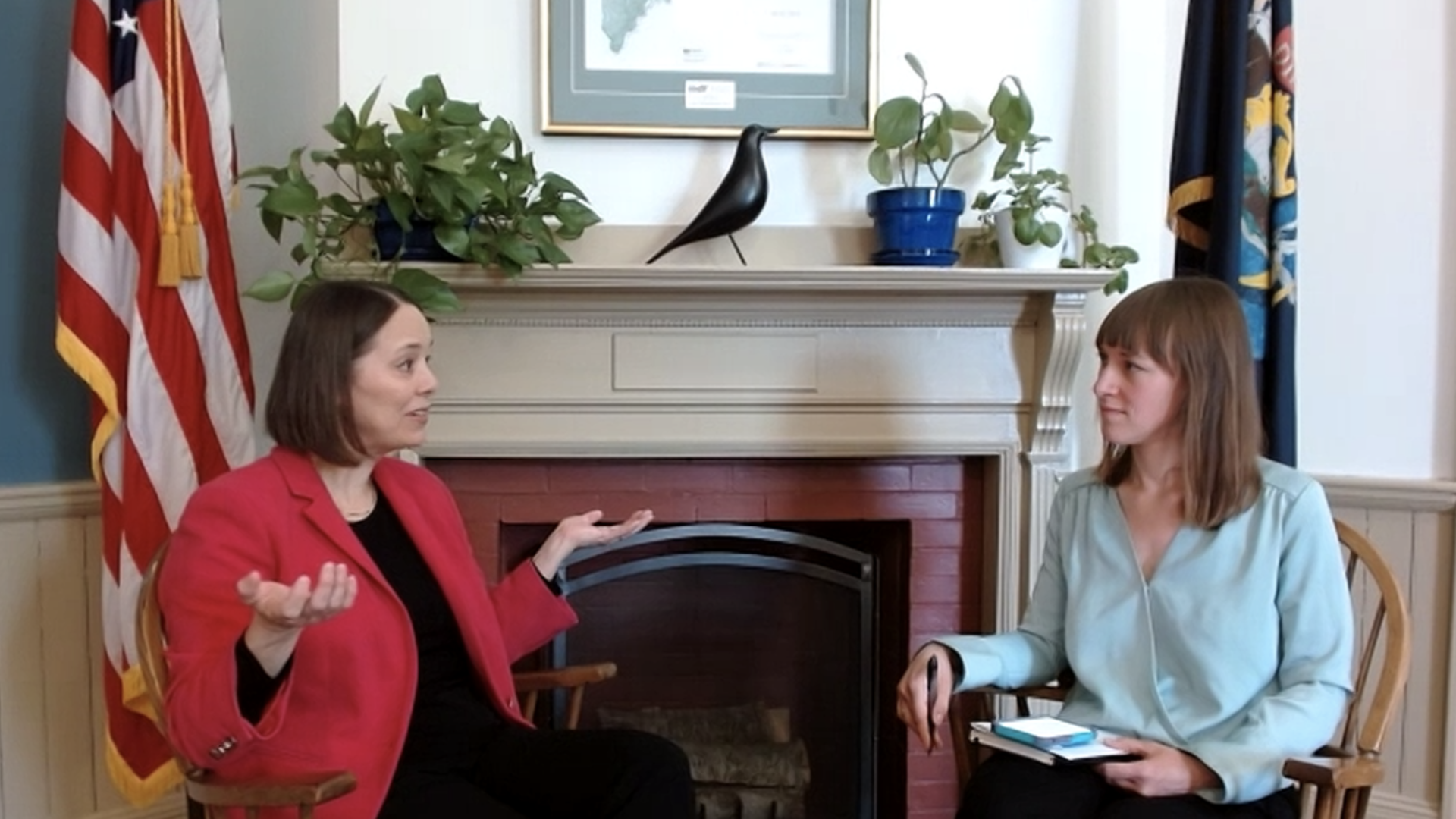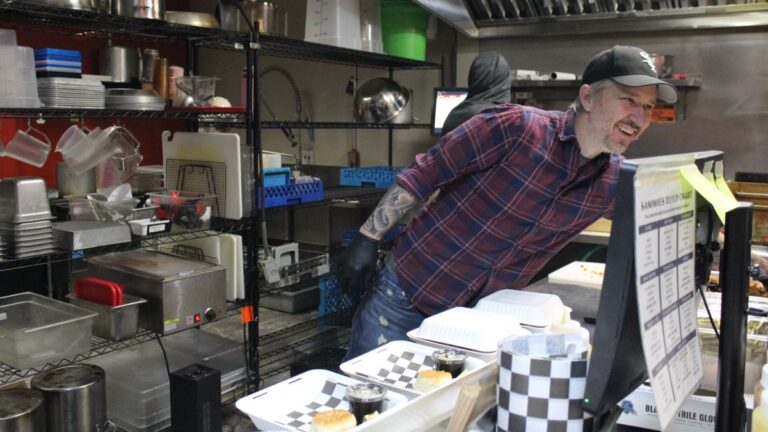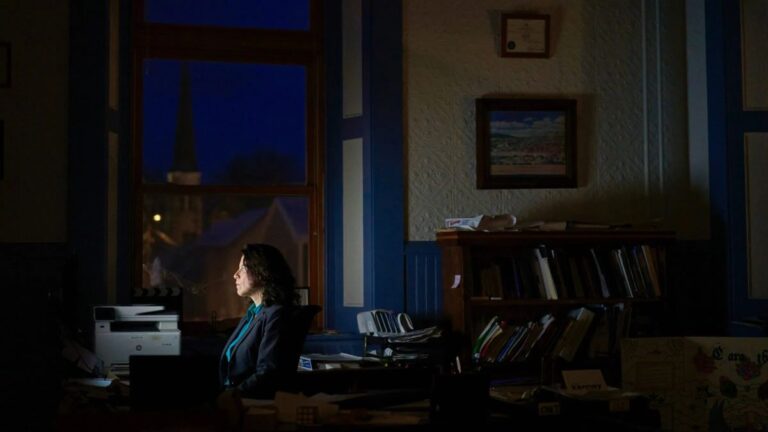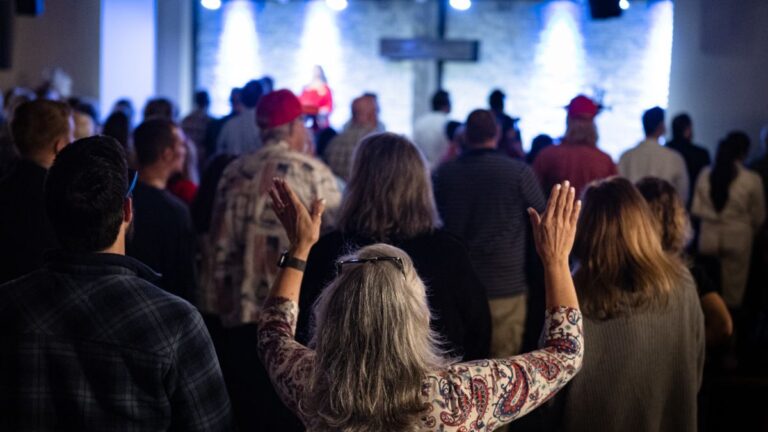A couple weeks ago, I sat with Secretary of State Shenna Bellows for a conversation about elections in Maine. The goal was to understand more about the work that goes into organizing and overseeing elections — where the ballot machines come from, how they’re tested and secured, how votes are counted, and how officials are preparing for threats to election security.
It was a fascinating, wide-ranging conversation, and I urge you to watch it in full. In the meantime, here are a few excerpts from our discussion, edited and condensed for clarity.
Kate: Tell us a bit about your role and how it relates to elections.
Secretary Bellows: The secretary of state’s role in the constitution is the guardian of the seal and the keeper of the records of the state. That means I oversee Maine State Archives, and over time it has evolved to include overseeing the Bureau of Motor Vehicles and Corporations as well.
In New England, elections are administered at the town and city level with oversight by the state. Out west, and in most other states across the country, elections are administered at the county level. And the counties are actually very independent from a secretary of state.
But for us … the secretary of state oversees the entire process. That means we certify all the candidates, and then we design, lay out and print all of the ballots for the entire state.
The cities and towns hire their own clerks, deputy clerks and registrars to actually implement the election, but we provide the training and the oversight to make sure that the law is followed.
Kate: We spoke with a researcher recently who has been surveying Mainers on local government. One of the things this person said is striking in their research so far has been the degree to which people trust their local government but don’t trust the voting process.
People, she said, don’t understand how voting is supervised, who is in charge, and literally how their vote is counted, what happens after it is cast, and how the certification process works. Can you walk us through this, maybe even starting as far back as the actual ballot machines and the voter rolls and how you’re preparing now for the upcoming primaries and for the general election.
Secretary Bellows: (Once signatures from potential candidates have been collected and verified), then we begin the process of designing the ballot. Now Maine law is very clear on every step of the election.
On June 11, I think there are going to be over 300 ballot styles, because you have 151 members of the House of Representatives and of course you have the option for any of Maine’s five parties to field candidates in the primaries for any of those races, and then you have 35 state senators, you have two House members of Congress … so different ballots look different in different towns.
The ballots are designed to be read by the tabulators that we use – it’s called a DS 200, the company is ES&S – we go out to bid for printing of ballots, and we then use test ballots to program the memory devices in the tabulators.
Those get programmed with the ballot design for that municipality. Now those get programmed here at the state level by civil service, nonpartisan election staff, so I’m not involved in the programming or the ballot design, for that matter. We always do those things in teams of two, so there are two eyes on the process … then they run the test ballots through the tabulator once that memory device is programmed and make sure that the count is accurate.
We then send out the memory devices to the towns. The ballots are also shipped out to the towns; the towns then have to test their tabulator (to make sure the count is accurate).
(On absentee ballots): Twice a week every week we run a query in our system to query all the voters who requested all of the absentee ballots and post that information online … on our website you can look and see all the absentee ballot requests that have been made in the state … when the clerk receives your ballot, that gets recorded in the system as well.
Those ballots don’t get opened until a day when they’re all getting processed in the public view of anyone that wants to watch that, including representatives from the parties.
Those ballots come with an absentee ballot request envelope that has your information on it. And you have to sign it, and you have to return it in that absentee ballot return envelope – you can’t just choose a different envelope … this is how people can be assured no one is stuffing ballot drop boxes, because you can’t just place ballots in a drop box. They’re not valid.
Kate: We saw in Michigan in 2020 how local officials can sometimes refuse to certify election results. Is that something you are worried about in Maine at all?
Secretary Bellows: No. One of the strengths of our democracy, and one of the challenges in terms of voter understanding of how it works, is that every state is different. So in Michigan the counties actually certify the election at that local level. In Maine, we’re what’s called a ‘top down state,’ so the towns are reporting their results.
And they’re not just reporting the results of the ballots, they’re also reporting who participated … When you go to vote on election day, you don’t just get handed a ballot. You have to go and you have to state your name and your address. They’re marking you on the voter rolls, they’re making a notation that you requested a ballot and that you’re being issued a ballot. So all of those ballot requests — whether they happen on election day — every person who votes has to be entered into the central voter registration system.
So on election night, when those ballots are counted by the tabulators, the warden – who’s the person in charge of a polling place in Maine on election day – has to sign off on those counts. They have to post those counts in public.
Kate: We don’t have to show our IDs at the polls to vote in Maine, but as you said we do have to show it to actually register. As I know you know, there have been various efforts over the years to require voter IDs at the polls — I believe there’s one ongoing now. Do you think it would enhance security to require voter IDs at the polls?
Secretary Bellows: I do not. And I think the debate is really not about whether you require identity for voting. Every state in the country requires proof of identity for the purposes of voting. The question is where in the process is that proof of identity required.
In Maine, that proof of identity is required at the point of registration. And stating affirmatively your name and address when you arrive on election day is also affirming your identity in that moment, and that easily creates a situation so that if someone comes to vote and someone has already voted in their name, that alerts people to the fact that a problem exists.
Kate: Last question: what do you see as the greatest threat to our election security?
Secretary Bellows: I think the greatest threat to our democracy, to paraphrase former President Franklin Delano Roosevelt, is fear itself. I think that sometimes anxieties and fears can lead people to make poor decisions – whether it’s threatening a local election official or turning away from participating or turning away from understanding because they’re too fearful or it’s too hard.
Most states have the same checks and balances that I’ve described or similar checks and balances. I think our elections are more accessible — more people participated in 2020 than ever before — and more secure. Despite concerns about voter suppression, despite the ugliness of our campaigns sometimes, despite some of the attacks on the rule of law itself, the fundamentals are strong. It really requires us to have courage and faith, and participate.







